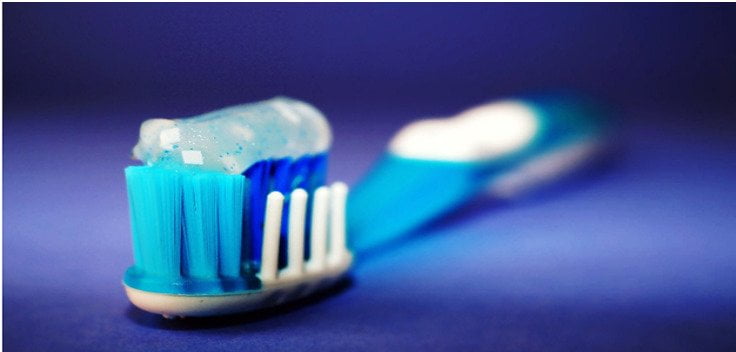Everything You Should Know about Sensitive Teeth

•What Is Tooth Sensitivity?
Tooth Sensitivity describes having dental hypersensitivity or root sensitivity. Sensitive teeth are common. If you have sensitive teeth, hot, cold, and sweet foods and drinks will make your teeth painful. Even breathing in cold air will make your teeth sensitive and painful.
So Why Are My Teeth So Sensitive?
As we said, sensitive teeth are very common and people feel pain after eating ice cream or hot soups. Pain caused by hot and cold foods and drinks is also a common symptom of cavities. That is why you should get your teeth checked if you feel any kind of pain.
The condition may be either temporary or chronic. In addition, it may affect either one tooth or more than one. It also can affect separated teeth.
There are many causes behind sensitive teeth. However, most of them are treated with slight changes in your oral hygiene routine.
When your gums recede or if you have periodontal disease, dentin on the root, the area will be exposed and that is how tooth sensitivity begins. Receded gums occur in 4/5 of the whole population by the age of 65.
On the other hand, the root becomes exposed when an enamel layer is shed off. You also should be aware of the cementum, which is the soft covering of the roots. If you lost the cementum, it leaves the dentin of the root exposed.
If you are using an abrasive toothpaste or if you brush your teeth hard, there is a big chance of exposing the dentin and causing abrasions to the enamel surface of the tooth.

People who eat foods that contain a high amount of citrus, pickles, or any acidic components can cause tooth erosions in addition to dissolving the surface of the tooth, which will lead to exposure of the dentin.
This is due to the high acidity of these foods. Bulimia and GERD can lead to the same results because of the acid reflex in the oral cavity
In addition, some people have sensitive teeth naturally. They have thinner enamel.
Teeth sensitivity can be a complication to something else such as tooth decay, broken teeth, chipped teeth, or old fillings or crowns. All these conditions can leave the root of your teeth exposed leading to tooth sensitivity.
To differentiate between this condition and other causes of tooth sensitivity, the discomfort is usually at a certain region or one particular tooth. The other causes usually cause general discomfort in most of your teeth.
Please notice that your teeth may be sensitive due to having dental work such as having a filing or a dental implant. This is temporary and the condition is limited to the tooth or the teeth where you have the dental work done. It disappears after a few days and your dentist will tell you about it.
• Symptoms of Sensitive Teeth:
The most common symptom of sensitive teeth is pain or discomfort after exposing the teeth to a stimulus such as cold or hot foods or drinks. Your dentist will check your teeth and determine whether this pain is due to teeth sensitivity or a cavity.
The pain is usually at the roots of the affected tooth or teeth. Once you eat or drink from the following list, it triggers the pain immediately.
1. Hot Drinks or Foods
2. Cold Drinks or Foods
3. Breathing in Cold Air
4. Very Sweet Foods or Drinks
5. Acidic Foods and Drinks
6. Cold Water, Especially While Cleaning Your Teeth
7. Aggressive Brushing or Flossing
8. Mouth Rinses Containing Alcohol.
The Symptoms usually comes and go with or without a cause and the pain (discomfort) may range between mild to severe.
• How Does Your Dentist Diagnose Your Sensitive Teeth?
Once you experience tooth sensitivity, it is better to make an appointment with your dentist. Your dentist will evaluate how healthy all your teeth are and check for any kind of problems such as dental cavities, loose fillings or crowns, or recessed gums.
People usually do this check-up during regular dental cleaning. Your dentist will clean your teeth and examine them if there are any kind of problems. They may use some dental instruments to check for sensitivity.
Some dentists may ask for an x-ray to make sure that the condition is not due to a dental cavity.
• Tooth Sensitivity Treatment:
The treatment is determined according to the degree of tooth sensitivity. If the sensitivity is mild, your dentist will recommend trying over-the-counter dental medications.
It is important to choose the perfect toothpaste for your sensitive teeth. There are some kinds of toothpaste out there made especially for you and they do not contain any kind of irritating ingredients. They also contain desensitizing ingredients that will prevent the transmission of pain or discomfort to the rest of your teeth.
It is also important to choose a mouthwash that does not contain any alcohol in order to prevent your teeth from any kind of irritation.
Try to find a soft toothbrush. Do not brush your teeth aggressively; just brush nicely and gently. Ask for a toothbrush made especially for sensitive teeth.
You will need to try certain products until you find the best for your teeth. Once you start applying these tips and using the best products for your teeth, you will notice an improvement within a week.
Finally, you can ask your dentist for a prescription containing a toothbrush, mouthwash, and a toothpaste. If the condition is moderate to severe, your dentist may apply a fluoride gel or a desensitizing agent. They also can make your enamel stronger in order to protect your teeth completely.
• The Conclusion (Are There Ways to Prevent Tooth Sensitivity?)
You can prevent tooth sensitivity by keeping your oral cavity healthy. Having good oral hygiene prevents receding gums and any kind of periodontal diseases. In addition, brushing and flossing your teeth gently and properly and choosing the best toothpaste for your sensitive teeth prevents the occurrence of abrasions.
Try to avoid acidic, hot, and cold foods and drinks.
If you ignored your tooth sensitivity, it may lead to further problems; that is why you should take care of your condition immediately.


Leave a Reply
Want to join the discussion?Feel free to contribute!